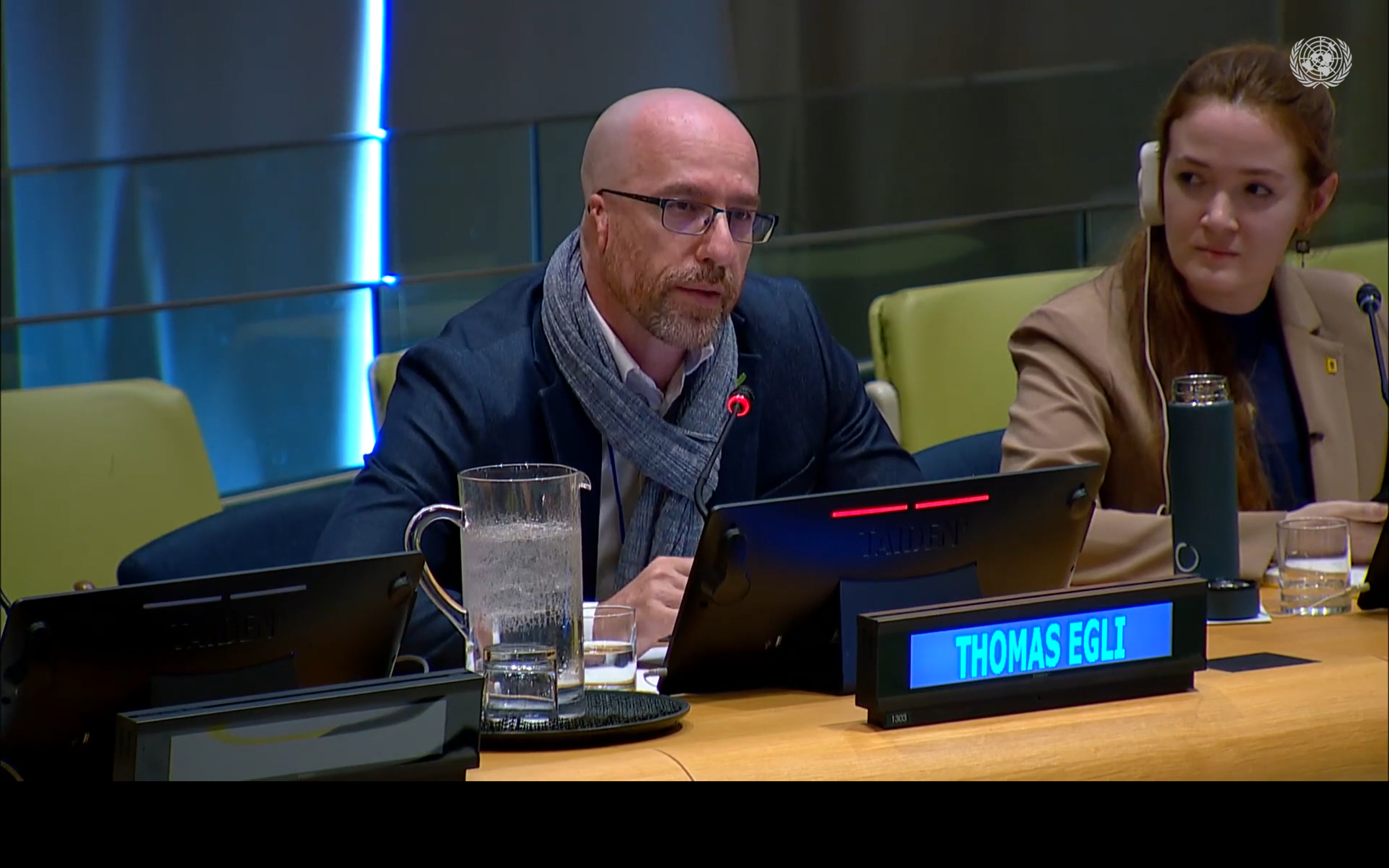Concept of Living Well Together: rethinking development from the South
The 79th session of the UN General Assembly held a special conference on Harmony with Nature and Living Well. But what does this term mean?
- Read here the text of my speech on this session,
- Read here my previous article on Impact Finance and the refinancing of life.
The turning point of "Vivir Bien" and alternatives from the Global South
Faced with the deadlock of the unlimited growth model, voices from the Global South are rising to propose other visions of development. These visions, such as the Andean Buen Vivir, African Ubuntu, or the Sufficiency Economy in Thailand, prioritize the relationship with Nature, the community, and time.
These are not idealistic discourses, but concrete political, economic, and legal frameworks already being implemented in several countries.
Successful experiences: evidence of feasibility and transformation
In Bolivia, the concept of Vivir Bien (Living Well) was included in the 2009 Constitution. It led to the creation of laws recognizing the rights of Mother Earth, the institution of local development policies based on multi-activity, and concerted territorial development initiatives. The National Biocultural Program integrates indigenous knowledge into public policy.
In Ecuador, integrating Buen Vivir into national planning has enabled the implementation of community health plans, intercultural education, and non-destructive rural infrastructure. The Secretariat of Buen Vivir has produced several alternative indicators to GDP, based on living systems, with criteria directly linked to humanity’s survival.
In Thailand, the Sufficiency Economy (Sufficiency Economy Philosophy) was formalized in the 9th National Plan (2002–2006) and guided policies for agricultural relocalization, the creation of cooperatives, and energy sobriety. The six royal development centers link peasant knowledge, rural innovation, and ecosystem preservation.
In South Africa, integrating the Ubuntu ethic into certain restorative justice or community development policies inspires models of social governance where relationships take precedence over individual performance.
Models suited to systemic challenges
These visions offer converging responses to global challenges:
![]() Climate crisis: they propose systems of organized sobriety.
Climate crisis: they propose systems of organized sobriety.
![]() Social crisis: they promote solidarity, commons, and relational ecosystems.
Social crisis: they promote solidarity, commons, and relational ecosystems.
![]() Crisis of meaning: they bring back to the forefront the goal of collective well-being and respect for life.
Crisis of meaning: they bring back to the forefront the goal of collective well-being and respect for life.
Relying on local knowledge, community dynamics, and territorial scales, they strengthen human societies’ resilience while reducing their ecological footprint.
This diversification of worldviews and sources of knowledge constitutes a systemic strength comparable to biodiversity in natural ecosystems: it increases the capacity for resilience, adaptation, and innovation in the face of change and crises. Failing to fully integrate the contributions of indigenous approaches would not only be a moral blindness, but also a strategic error for societies wishing to endure.
It is therefore essential that dominant systems take these approaches into account with heightened vigilance, not out of condescension or altruism, but for systemic coherence.
Strategic interests in developing them
Experiences from the South show that these alternatives are not peripheral, but central to the global transition. Several strategic reasons justify their expansion:
![]() Lower ecological cost for significant economic and social impact.
Lower ecological cost for significant economic and social impact.
![]() Strong territorial anchoring, ensuring better appropriation by populations.
Strong territorial anchoring, ensuring better appropriation by populations.
![]() Reduction of external dependencies (financial, energy, food).
Reduction of external dependencies (financial, energy, food).
![]() Increased social stability, through the importance of community ties and sharing.
Increased social stability, through the importance of community ties and sharing.
Ultimately, this is the same approach as cutting-edge intermediate technologies (low tech) in the field of societal organization.
Many international actors (UNDP, FAO, IPCC) now recognize the relevance of these models. Climate transition, for example, cannot happen without locally appropriate and culturally rooted solutions.
A global paradigm shift
Rethinking development from the South means understanding that the diversity of worldviews is a planetary asset. It does not mean giving up modernity, but reinventing it from living roots.
These models can inspire hybrid public policies, innovative cooperation mechanisms, and powerful narratives for a civilization in harmony with Nature.
Mr. Thomas EGLI’s interventions on April 22, 2025 in New York

Link to the UN web TV, session of Apr. 22 (you can watch in French or English by adjusting the audio)
Indicative bibliography
![]() Eduardo Gudynas (2011), Buen Vivir: Today’s Tomorrow
Eduardo Gudynas (2011), Buen Vivir: Today’s Tomorrow
![]() UNDP Bolivia (2014), Living Well Framework
UNDP Bolivia (2014), Living Well Framework
![]() Piboolsravut, P. (2004), Philosophy of Sufficiency Economy
Piboolsravut, P. (2004), Philosophy of Sufficiency Economy
![]() UNEP (2015), Multiple Pathways to Sustainable Development: Initial Findings from the Global South
UNEP (2015), Multiple Pathways to Sustainable Development: Initial Findings from the Global South
![]() Thomas Egli (2001–2021), Ideas of the Living – Bio-inspired systemic governance
Thomas Egli (2001–2021), Ideas of the Living – Bio-inspired systemic governance
